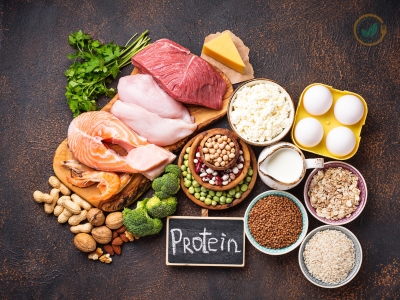According to the diet founder, California cardiologist Steven Gundry, M.D., a diet containing lectins leads to inflammation and weight gain.
Here we discuss what reality is according to the latest valid scientific research.
Lectins are carbohydrate-binding proteins widely distributed in nature and occur in various foods such as cereals, fruit, vegetables, animal products, and fish. Insignificant amounts of lectins are consumed from unprocessed fruits and vegetables.
The safety and overall health effects of dietary lectins have long been a topic of concern among researchers, with some suggesting that they are harmful to health; hence the term ‘anti-nutrients.’ It is also interesting to note that many of the foods excluded in the low FODMAP diet also contain lectins. So This raises the possibility that it may not just be the FODMAPs that are causing problems in those who benefit from their exclusion.
Cases of food poisoning involving raw or inadequately cooked legumes are well documented. For example, in the UK, between 1976 and 1989, 50 cases of food poisoning were suspected to be caused by inadequately prepared kidney beans. Lectins toxicity, caused by the consumption of fresh kidney beans, is also common in China and affected over 7000 individuals between 2004 and 2013.
However, in all cases, beans were either consumed raw, soaked, or cooked using temperatures inadequate to destroy lectins.

Although lectins are relatively resistant to enzymatic digestion in the gastrointestinal tract, they can be removed from foods by various processes. For example, soaking, autoclaving, and boiling causes irreversible lectin denaturation. Boiling legumes for one hour at 95 °C reduce hemagglutinating activity by 93–99 %. Another study found that autoclaving lima beans for 20 min eliminated all anti-nutrients except tannins. The boiling of red and white kidney beans, notoriously rich in phytohemagglutinin (PHA), also resulted in the complete elimination of lectins. Microwave ovens, on the other hand, are not an effective method for lectin deactivation. Though microwaving destroyed hemagglutinins in most legume seeds, it did not significantly affect lectins in common beans. Additionally, fermentation over 72 h has been demonstrated to destroy almost all lectins in lentils.

In contrast to the anti-nutritional characteristics of lectins initially proposed by many researchers, some evidence suggests that lectins may have therapeutic benefits and could be used as functional foods and nutraceutical agents.
Legume lectins isolated from lentils, chickpeas, jack beans, peas, and common beans all show anti-proliferative activity against various cancer cell lines. However, human clinical trials are still needed before any conclusions can be made.

The critical point is, legumes and other lectin-rich plant foods are excellent sources of essential amino acids, prebiotic fibers, vitamins, minerals, and powerful antioxidant and anti-inflammatory compounds.
Conclusion:
Overall, research does demonstrate that lectin-rich foods, if not prepared properly, can lead to food poisoning. However, traditional processes such as soaking, sprouting, fermenting, boiling, and autoclaving are all methods that can significantly reduce lectin content. In particular high-lectin legumes, such as soybeans and kidney beans, boiling or autoclaving is required to eliminate lectins, as reduced cooking temperatures do not significantly affect lectin content.
Until further human clinical trials demonstrate otherwise, the health-promoting effects of lectin-containing foods would seem to outweigh any possible adverse effects of lectins far.
References:
Changes in levels of phytic acid, lectins and oxalates during soaking and cooking of Canadian pulses
Insecticidal activity of plant lectins and potential application in crop protection
Toxicity Assessment of Common Beans (Phaseolus vulgaris L.) Widely Consumed by Tunisian Population
Dietary Lectin exclusion: The next big food trend?
Structure-function and application of plant lectins in disease biology and immunity











